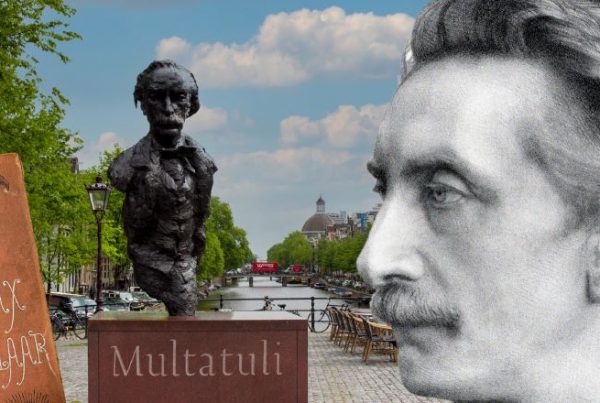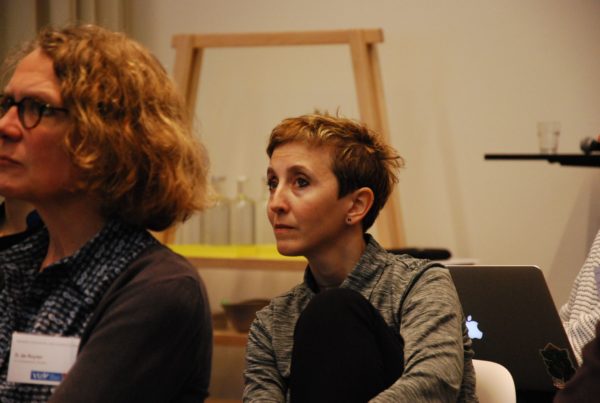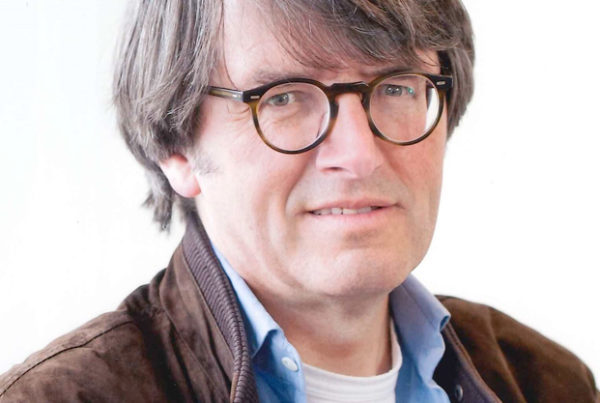The Abraham Kuyper Center announces the four fellowship recipients, who will participate in the research project “The Epistemic Responsibilities of the University“. The recipients will stay some time in Amsterdam the coming year to write papers (together with the project team) on topics related to the responsibilities of the university.
We are looking forward to be working with:
- Ryan Byerly (University of Sheffield)
- Mikkel Gerken (University of Southern Denmark)
- Ian James Kidd (University of Nottingham)
- Josh Reeves (Samford University)
Read further to find out who these persons are and what they will contribute to the project.
Ryan Byerly
Ryan Byerly is a Lecturer in the Philosophy Department at the University of Sheffield. His research is in virtue theory, epistemology, and philosophy of religion, and tends to focus on questions pertaining to moral and intellectual character, epistemic justification, and free will. Ryan is author of more than thirty journal articles or book chapters, and author or editor of three books including a recent, innovative textbook titled Introducing Logic and Critical Thinking: The Skills of Reasoning and the Virtues of Inquiry (Baker: 2017).
Ryan’s work for the Epistemic Responsibilities of the University Project is titled “Teaching for Virtue: Transforming the Traditional Logic & Critical Thinking Class.” It will involve three studies pertaining to teaching for intellectual virtue. Using both philosophical and psychological resources, the studies will address questions pertaining to which intellectual virtues can and should be taught, where in the curriculum they should be taught, and why they should be taught. Ryan aims to publish these studies in an academic journal concerned with pedagogical practice in philosophy.
Mikkel Gerken
 Mikkel Gerken (PhD, UCLA, 2007) is a Danish philosopher. His research concerns theory of knowledge and is integrated with cognitive psychology, philosophy of science, philosophy of mind, theories of language and communication and philosophical methodology. Gerken was an associate professor at the University of Edinburgh before returning to his native Denmark, where he is now an associate professor at the University of Southern Denmark. He has published in journals such as Australasian Journal of Philosophy, Noûs, Philosophy & Phenomenological Research and Philosophical Studies. Gerken has co-edited a collection ‘Knowledge Ascriptions’ (Oxford University Press 2012) and authored two monographs: ‘Epistemic Reasoning and the Mental’ (Palgrave 2013) and ‘On Folk Epistemology’ (Oxford University Press 2017).
Mikkel Gerken (PhD, UCLA, 2007) is a Danish philosopher. His research concerns theory of knowledge and is integrated with cognitive psychology, philosophy of science, philosophy of mind, theories of language and communication and philosophical methodology. Gerken was an associate professor at the University of Edinburgh before returning to his native Denmark, where he is now an associate professor at the University of Southern Denmark. He has published in journals such as Australasian Journal of Philosophy, Noûs, Philosophy & Phenomenological Research and Philosophical Studies. Gerken has co-edited a collection ‘Knowledge Ascriptions’ (Oxford University Press 2012) and authored two monographs: ‘Epistemic Reasoning and the Mental’ (Palgrave 2013) and ‘On Folk Epistemology’ (Oxford University Press 2017).
For the project, Gerken’s primary contribution will be an investigation of the nature of scientific testimony and its role in liberal democracies that are characterized by a high degree of cognitive diversity. In particular, he will address the tension between representing the most reliable scientific testimony and a broader range of testimonies reflecting the diversity in society. In doing so, he will explore whether laypersons’ reception and evaluation of expert testimony may be biased.
Ian James Kidd
 Ian James Kidd is an assistant professor of philosophy at the University of Nottingham, UK, and formerly worked at Durham and at Leeds. At the moment, he’s working on a set of topics in virtue and vice epistemology, especially as they relate to applied domains, such as education, healthcare, and science.
Ian James Kidd is an assistant professor of philosophy at the University of Nottingham, UK, and formerly worked at Durham and at Leeds. At the moment, he’s working on a set of topics in virtue and vice epistemology, especially as they relate to applied domains, such as education, healthcare, and science.
In his contributions to this project, Kidd explores the phenomena of ‘epistemic corruption’ – the variety of experiences that can encourage and fuel the development and exercise of the vices of the mind. Since our epistemic characters are, to a degree, malleable and able to be shaped for better or for worse, it does seem that the majority of people have natural leanings toward vices – such as dogmatism, conformity, and so on. Kidd’s work on this project explores the ways that institutionalized forms of education might be epistemically corrupting. Do certain ways of teaching promote vices such as epistemic laziness? Can some teachers act as unwitting exemplars of epistemic vice? Might educational policies promote certain vices, either in students or in teachers? Should it be an aim of education to purge students of vices and to promote virtues? How does these character-focused concerns relate to other aims of education?
Josh Reeves
Josh A. Reeves is assistant professor in Sc ience and Religion in the philosophy department at Samford University in Birmingham, Alabama. He is a graduate of Cambridge University and Boston University and completed a postdoctoral position in the Heyendaal Program for Theology and Science at Radboud University in the Netherlands. He is co-author of A Little Book for New Scientists and has published articles in journals such as Zygon, the Journal of Religion, and Theology and Science.
ience and Religion in the philosophy department at Samford University in Birmingham, Alabama. He is a graduate of Cambridge University and Boston University and completed a postdoctoral position in the Heyendaal Program for Theology and Science at Radboud University in the Netherlands. He is co-author of A Little Book for New Scientists and has published articles in journals such as Zygon, the Journal of Religion, and Theology and Science.
As a part of the project, Dr. Reeves will produce two papers. One will delineate the proper role that universities should play in mitigating science skepticism among American Christians. The other will evaluate the function and value of theology faculties in public universities.





